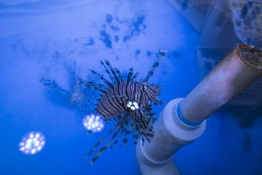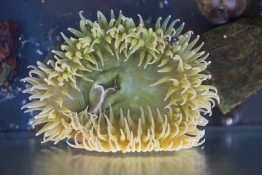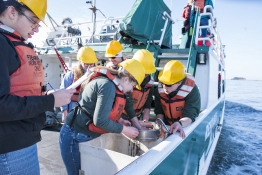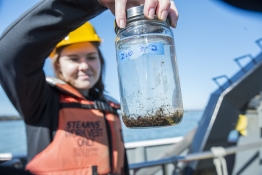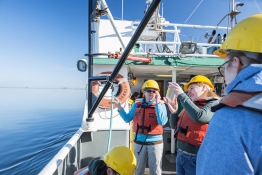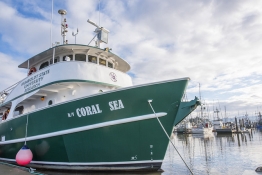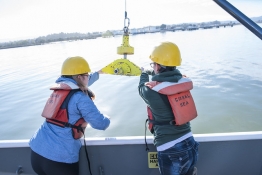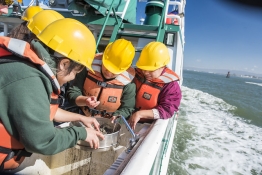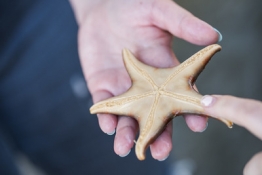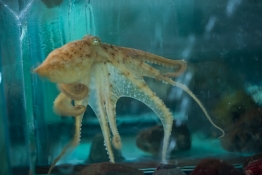Academics & Options
We have a rigorous, broad, and versatile program that can be tailored to a range of sub-disciplines.
We’re a small, close-knit department that focuses on more than academics. As early as your sophomore year, you’ll engage in research and job opportunities.
Bachelor of Science degree in Oceanography
Our major provides students a broad science background, an understanding of fundamental concepts unique to Oceanography, and an appreciation for how concepts from various closely allied science fields are interrelated and applied to the solution of oceanographic problems. The goal of the program is to develop interdisciplinary science knowledge, which is essential to the study and understanding of the oceans.
Major Academic Plans (MAPs)
Sub-disciplines
Students who major in Oceanography can also tailor the program to a range of sub-disciplines that have an oceanic focus, making it easy to earn a minor in other disciplines such as Biology, Chemistry, and Geology.
- Biological Oceanography: the study of marine ecosystems and how they function.
- Chemical Oceanography: the study of how chemicals move through the marine environment.
- Geological Oceanography: the study plate tectonics, classification of major bathymetric features, and the distribution, transport and deposition of recent sediments in the marine environment.
- Physical Oceanography: the study of the physical conditions and physical processes within the ocean such as waves, currents, eddies, gyres and tides.
Minors
We offer a minor in Oceanography.
Catalog information: Loading...
Humboldt Diving program
Additionally, SCUBA diving, though not required for any degree at Humboldt, can be useful for some shallow water research and can also be an enjoyable form of recreation. Many of our students participate in the Humboldt Diving program, which offers a series of diver training courses and a Minor in Scientific Diving.

